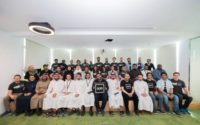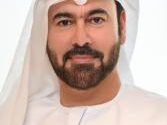Efficiency, Sustainability, Ease Of Use And Cost – Key To Tech Implementation In The Construction Industry, Say Experts
Leading international real estate and construction consultancy Drees & Sommer has released the findings of the first in a series of studies addressing the issues impacting the construction industry.
Chaired by Drees & Sommer General Manager, Bob Hope and moderated by Head of Interdisciplinary Design & Innovation, Abdulmajid Karanouh, the event brought together 12 construction industry experts from a diverse range of companies and included architects, consultants, engineers, contractors, facility managers and developers to discuss and identify the most effective way of implementing technology and smart design into the construction sector.
“The consensus among the experts was buildings should be designed, engineered, and constructed with not only sales in mind, but should also consider the environment, efficiency, manageability, user comfort and wellbeing,” said Karanouh.
“Satisfied tenants bring more value to developers than just a one-time purchase, they become endorsers of projects both present and future,” he added.
The four key findings of the discussion included the importance of bringing representatives from across the industry into the early planning stages to maximise efficiency; the need for sustainability; the ease of tech use; and cost implications.
It was identified there is a desire by developers and investors to implement new technologies into their buildings, however, many are reluctant first, due to concerns related to maintenance of the smart systems throughout the service life of the building and second, the possibility of them becoming obsolete.
“There is a need for construction and real estate professionals to communicate the value of new technology in a market that doesn’t yet have benchmarks. Society needs to adapt and find new improved ways of living and as developers we understand this, but we need solutions to last long term,” said Sami Elmadalla, COO of First Invest Group.
This sentiment was echoed by Fadi Nwilati, CEO of Kaizen Asset Management, experts in real estate and property management who has witnessed building management systems that simply don’t work and due to poor construction quality, which then creates difficulties retrofitting the existing digital solutions, further underscoring the need to bring industry professionals together at the initial stages.
From a sustainability perspective it was agreed developers want to implement the best solution for their projects, however, the challenge is keeping operational expenditure low. Muhammad BinGhatti, CEO of Binghatti Developers, who have an investment value of AED3 billion, said: “There are two ways to justify this, the first is using sustainable building materials that will last with minimal maintenance and the second is to implement technology that helps by keeping operational costs low – such as light motion sensors.”
It was also outlined that developers can no longer rely solely on a brand name on the quality of products and that Dubai tenants in future will be looking for added value, including savings on energy consumption that contribute to more sustainable living or operating a business.
Neil Doe, CEO of QI-Energy, experts in the innovation and renewables space, said: “Smart or renewable energy considerations are often an afterthought when it comes to construction and, as a result, buildings don’t operate to their full sustainable capacity. We need to change our overall way of thinking about how to create solutions that will serve future needs. We must focus more on what else our buildings can do for the environment in which they are built.
Rounding out the discussion it was agreed that digitalisation of buildings needs to be feasible and pragmatic, key criteria of Drees & Sommer’s approach to development and implementation of smart technologies. “We don’t want buildings filled with overly technical gadgets that are not easy for tenants to use. Each element used when revitalising or digitalising a building must be carefully planned to serve the building and its tenants now and for the future,” concluded Stephan Degenhart, Associate Partner of Drees & Sommer and Managing Director of Middle East office.
Drees & Sommer commenced operations in the Middle East in 2003 by providing innovative solutions to the region’s real estate and hospitality sectors.
Globally, the company has developed an impressive track record since it was established nearly 50 years ago and has delivered an extensive portfolio of world-class developments around the world and the Middle East including Dubai, Abu Dhabi, Ras Al Khaimah, Riyadh and Jeddah.








 Email: info@cyber-gear.com
Email: info@cyber-gear.com